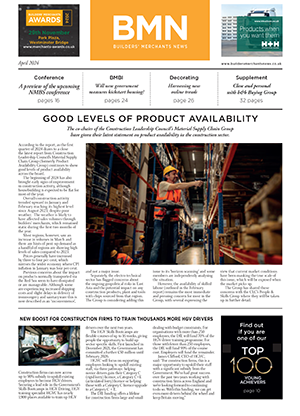Builders’ Merchants have seen an unprecedented rise in the number of heat pumps being bought from their stores. With tightening Building Regulations and increasing fuel prices this increasing uptake is set to continue.
However, merchants should be aware that in order for these new technologies to achieve the energy efficiencies of which they are capable, new regulations are coming into force to ensure that heat pumps are installed to the highest design standards.
While installers and heat pump engineers could be forgiven for being frustrated at the ever changing legislation and standards surrounding energy efficiency in homes, shops and offices. And the snappily entitled MCS MIS 3005 v3.1a updated heat pump installer standard, which has just introduced wide-ranging changes to MCS heat pump installers, will probably be greeted with little gusto by many.
However, before it is dismissed as another piece of red tape introduced to tie heat pump installers up in knots it is worth merchants giving some thought as to why the changes have been brought in and what the MCS accreditation standard is designed to achieve so that they might advise their customers.
For the consumer, the MCS scheme offers reassurance that installers have been independently assessed against system design standards and so ensures that they can rely on the quality of work. With any new product or service, there is always concern about investing in relatively unknown products or technologies. The MCS accreditation is designed to offer assurances that products and services meet rigorous and consistent Government standards, thus going some way to easing some of the anxiety about adopting an innovative product or technology.
Following on from this, the recent revisions are designed to improve the quality of heat pump installations in a number of important areas. For example, from now on installers must understand the new requirement for 100% sizing at defined outdoor temperature criteria, in order to reduce the risk of an undersized heat pump being selected. The changes are also designed to ensure that home owners are fully aware of the type and characteristics of the renewable energy heating system that they will own for the next 15 or so years.
There are many changes for all MCS heat pump installers and the key changes that will specifically affect air-water heat pumps installers are:
- Heat loss calculations should comply with BS EN 12831 and should be done on a room by room basis. Design internal air temperatures and ground temperatures are specified in the MCS design standard.
- Heat pumps must provide 100% of the peak heating load as calculated at a specified external air temperature based on CIBSE data. Electric back-up heaters can only be used below this specified CIBSE design temperature
- The “Heat Emitter Guide” must be shown to customers to help them understand the effect of final emitter selection on total system efficiency. Heat pump installers must liaise with designer/installer of the heat emitters to ensure that the emitter is correctly sized for the flow temperature
The whole updated standard is now available from the MCS web site along with a guidance documents and a heat loss calculation tool, which I recommend are read and understood clearly. The changes came into effect on 1st March 2012 and installations will then be checked for compliance after 1st April.
While nothing ever seems to standstill within the heat pump industry, it is clear that we need to acknowledge that these changes are designed to lead to higher system design and installation standards within the heat pump industry. These modifications to the installer standard will help to give end users reassurance that best practice is being complied with and that the highest levels of system efficiency are achieved for each installation.
They will also ensure that future installations follow a similar procedure for system design and that home owners are kept fully informed throughout the process. This can only led to even higher satisfaction from home owners and reduced carbon emission from buildings – as well as an even more enhanced reputation for the industry as a whole.
Graham Wright is legislation specialist at Daikin UK.







